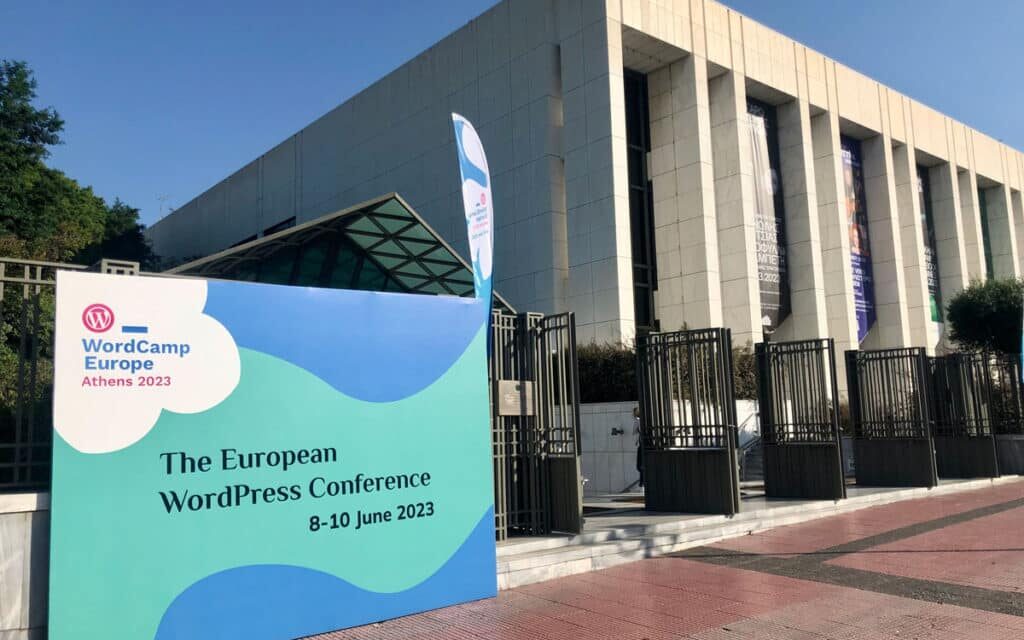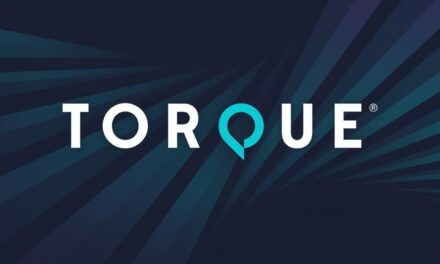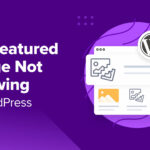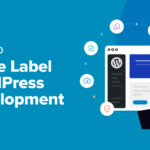Well, it’s June again and you know that means: time for a report from WordCamp Europe 2023! Like many others, I descended on Athens this summer to attend the annual WCEU convention. It was the second in-person WordCamp Europe since the pandemic after last year in Porto. Besides meeting old friends, making new connections, and general socializing, I came to learn what’s new in WordPress and listen to talks on different topics.

The two main themes that dominated the discussion for me this year were artificial intelligence and the problem of bringing members of the younger generation to the WordPress sphere. Therefore, as I am trying to summarize some of my favorite talks this year, these topics will come up a lot.
So, if you couldn’t make it to the convention yourself, fear not. Here’s a glimpse into what WordCamp Europe 2023 was all about.
Opening Remarks: Why WordCamps Are Special
Naturally, the event, which was located in the Megaron Athens International Conference Centre, started with opening remarks by the leads of this year’s WordCamp Evangelia Pappa, José Freitas, and Sjoerd Blom.

They stressed the importance of WordCamps as an opportunity for bringing people together, building the community, and sharing knowledge with each other.
(Case in point, one of the main things I learned this year was that the Gutenberg editor supports markup. That means, you can use ## to create an H2 heading, ### for an H3 heading and so forth. It’s a game changer. Thanks to Birgit Pauli-Haak for pointing that out to me!)
This year, 2,862 people from 100 different countries registered for the event, 1,300+ of them first timers. Besides the usual three tracks, they could also attend workshops, WP Connect for community events, as well as the wellness that we have gotten to know from earlier years.

Of course, what made it all possible were the 150 volunteers, many of which have been volunteering for several years in a row. In addition, the event couldn’t have taken place without the sponsors, which included 103 microsponsors from the community this year.
As usual, the event was live streamed on YouTube, so if you want to rewatch any of the presentations, you can do so here:
After that, it was time to dive right into the presentations.
WordPress Performance: Community Perspectives

The first talk I attended was a panel discussion on WordPress performance. The panelists were Miriam Schwab (co-founder of Stratic, now Elementor), Thierry Muller (Software Engineering Manager at Google/Chrome), Rahul Bansal (CEO rtCamp), and Adam Silverstein (moderator). They discussed performance not just in terms of speed but also in terms of usability and user experience.
AI and Website Performance
One thing that they touched on was how artificial intelligence could help with WordPress performance. Here are some of the use cases they imagined:
- AI could do all the actual optimization work, like image processing and compression
- It could help with the last mile of performance that’s hard for humans to do, like shift around render-blocking JavaScript without breaking the website
- Generally, AI could be better at contextually analyzing performance problems on individual websites and offer tailored advice
Why Has WordPress Not Improved as Much as Other Platforms?
Here, the panelists said that the first thing to keep in mind is that other platforms have control over their entire website stack, making it easier to introduce changes. That is simply not the case in WordPress, which has to account for many different setups. In addition, WordPress has legacy code to maintain for backward compatibility.
As a consequence, WordPress is simply moving more slowly. However, in addition, there has been a lack of focus on performance so far. The problem was mainly outsourced to hosting providers.
This is changing now. For the first time we have a WordPress performance team, which shows a shift in focus to the topic of performance, including environmental factors. So, WordPress will catch up but it takes a little longer.
Finding a Balance Between Features and Performance
What might help balance features and site performance, including for client work, is to treat performance as a feature in itself and tie it to ROI and business goals. Once a site has been published, the goal is for it to succeed on the web and user experience is very important for that. This includes non-front end parts, such as dashboards.
Therefore, if you or you client is thinking of adding a feature, A/B test it against performance. If users fall off, it’s probably not worth adding the feature. You can also use this to demonstrate to clients that adding more functionality might be hurting their goals, e.g. that it reduces sales due to performance. User experience is the ultimate goal.
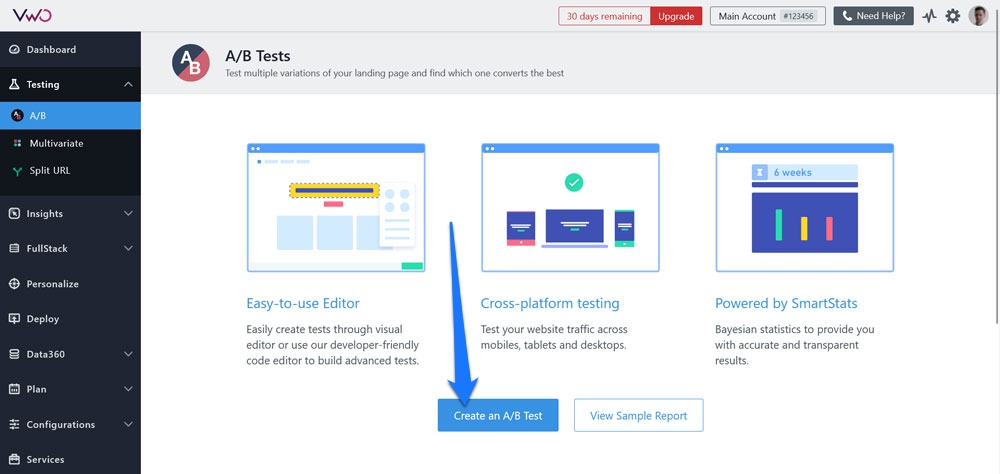
Going Beyond Performance, What is Your Dream for WordPress in 10 years?
At this point, Miriam was the first to mention the need for making WordPress more attractive to young people. She brought her daughter to WCEU, who had never heard about WordPress. The platform unfortunately has a problem appeal to young people and getting out there.
Probably one of the main problems here is user experience, especially for new users. A possible remedy for that could be better onboarding. For example, finding a way to capture user goals, then automatically create a website for them with the necessary tools as a good starting point.
Other items on the wish list were better media management and optimization as well as video and image editing inside WordPress as part of content creation.
WordPress Performance: Q&A
The session ended with questions from the audience, which raised additional issues:
- Admin performance — There was an important reminder to also look at the wp-admin interface when it comes to performance, which currently loads a lot of JavaScript libraries on every screen. The panelists also reminded the questioner that optimizing this is a matter of resources and that right now content creation and front end performance have priority. However, it’s not a question of if but when the back end gets its turn.
- Modern image formats — Another question was about implementing modern image formats like AVIF or JPEG XL in WordPress. Moderator Adam Silverstein actually gave a talk on that at WordCamp US 2022 for those who want to learn more.
Panel Discussion: AI in WordPress
Another panel discussion that I attended was on the topic of AI in WordPress. The panel was made up of individuals whose companies already have AI tools and products out in the wild. Therefore, the discussion was about real and tangible examples of what AI is already used for in WordPress and not just theory.
Here’s who took part in the discussion and how they are already using artificial intelligence:
- Sujay Pawar (Brainstorm Force) — His company has developed an onboarding process using AI as well as other AI products.
- Gabriella Laster (Elementor) — Elementor offers access to an AI model in their page builder plugin that can generate text, change the tone, translate content, and generate custom code. They are also launching an AI model for image creation and other tools for web creators.
- Constanze Kratel (BigCommerce) — BigCommerce have been using AI to improve the developer process and for ecommerce.
- Daniel Kanchev (Siteground) — Siteground uses AI internally and externally for translation, support, and content classification (i.e. spam). They are also working on getting AI to help with website creation.
- Shane Pearlman (Liquid Web) –Shane’s company offers AI tools such as to build quizzes for the LearnDash plugin. He was also the moderator of the discussion.
AI as an Assistant for Website Setup
One of the biggest challenges in both website and content creation is the blank page. The panelists agreed that in order for AI to be useful for setting up websites, users need more than a prompt, they need choices. Collecting targeted feedback from users allows you to zone in on what they are trying to build.
Another issue that AI raises for the WordPress sphere as a whole is how to get AI tools to suggest WordPress as a website building tool in relevant prompts. Having outstanding documentation that they can index as content is key here.
What Else Are You Using AI for?
Among the panelists, one of the most frequent areas of application for AI was in support, both internally and externally. AI models can help support members, customers, and developers find the right information and provide targeted consumer assistance.
Siteground also uses artificial intelligence in customer communication as a quick help guide. Users can select an AI model to answer their question, which accesses the knowledge base and generates a reply. If that isn’t enough, they can escalate to a human operator.
All of the panelists stressed the necessity of proper feedback for training the AI. It’s important to both collect the right feedback and regularly test and review the answers the AI gives, not fully rely on user reporting. Another ways is to use AI as a copilot for support agents who can see its replies and provide feedback on them.
Translating Websites Using Artificial Intelligence
Another application for AI is in the area of translation. Here, too, it’s super important to train the models well. You need to provide them with the right terms and be prepared to improve the models over time. Plus, definitely have human translators at hand for checking and feedback.
This also works for customer support in different languages. Here, keep in mind that the target isn’t necessarily native language proficiency. The AI only needs to be better than two non-native speakers trying to communicate in a common foreign language. Customers want their stuff fixed, they don’t need perfect speech.
In the end AI can take you 80-90 percent there but you still need internal, human input to make it really good. The human touch is probably something that will always be required.
AI for Media Creation
AI can also really help streamline image production. For example, it can provide different color options for the same product photos, eliminating the need to have to photograph each item variation.

You might also be able to get different background images and settings or quickly localize banners. Overall, AI image generation is getting better quickly so we will see more variety and content soon.
Accessibility and AI
Another area that artificial intelligence will likely have a big impact on is accessibility. For example, it is already possible to feed Midjourney an image and have it describe its content for you. You can use that as an ALT tag or even have an AI automatically fill it in.

In addition, AI might be able give you a checklist of what needs to be done to make your site more accessible and also propose ways to do it. This is something that would be great to have in WordPress Core.
Search, Reporting, and Analytics
There are already different models for improving search and reporting. In the future, AI could give you the ability to log in to your site or tools and simply ask for your desired information, such as top-selling products, etc.
It might, at some point, even be able to implement the findings and act on results and feedback, such as adjusting product pricing. AI might even run tests and experiments and make recommendations from there.
What Are You Hoping to See in the Future for AI in WordPress?
The answers to this question varied:
- Gabriella — The majority of the population have not adopted AI yet. It would be great to make it more accessible and help people get on board. In addition, currently we are looking for AI to make our lives easier. However, the next step is to think about how AI can help us do things that we have never done before.
- Daniel — AI will soon help end users build their own websites. The next step is to have it work as an agent to help you run the rest of your business. AI could provide analysis and tips or you could give it a goal and it iterates on it.
- Shane — Get AI into business intelligence tools and analytics. Get it to a point where you can just have a conversation. It could look at how things are going on your website and give recommendations for improvements. The next step is for it to organize your life, book appointments, and work as an assistant. Right now, we are in pure discovery phase. We don’t know what’s possible yet until we see it.
- Constanze — Using AI for store optimization, automatic translation, and localization. Get sentiments and data from your community and aggregate it to propose improvements for your business.
- Sujay — You use so many tools in business, it would be great to have one central tool that integrates with all of them and can simply answer questions.
In short, we have exciting times ahead of us.
Tomorrow’s Generation’s Perspective on WordPress
This talk was given by Tycho de Valk who, at 16 years old, was the youngest speaker to ever be on stage at a WordCamp. He is also the son of Joost de Valk and Marieke van der Rakt (formerly Yoast), a support engineer at Yoast, and has his own web development agency.
After doing a survey among people his own age, Tycho discovered that their awareness for and opinion of WordPress was not that great. His talk was about why that is and how to address this problem.

3 Reasons Why WordPress Fails to Appeal to Young People
Tycho identified three reasons why WordPress is not popular among the younger generation:
- Its marketing does not focus on young people
- WordPress is hard to get started with
- The platform is not as appealing as its competitors
To the first point, the social media platforms that WordPress is popular on are not the same as young people use. Gen Z is mainly on YouTube, TikTok, and Snapchat and listens a lot to influencers. WordPress does not take advantage of that.
For example, Shopify does do marketing for young people. They had a cooperation with Mr Beast (currently the most popular YouTuber) who named a mountain in Antarctica after the platform.

In addition, WordPress’ onboarding isn’t great, competitors are much better at this. Case in point, Shopify and Wix will both help you set up your site, in WordPress users are mostly left to fend for themselves.
Finally, WordPress is not that flashy, it doesn’t look as modern as its competitors. In Tycho’s survey, 75% of respondents liked the Wix or Shopify interface better.
How to Address These Issues
Fortunately, there are ways to address these problems. For one, better onboarding experiences already exist in the WordPress sphere such as Woo Express or Extendify. That shows that it’s possible to improve in this area. In addition, shifting the focus to social media for young people and collaborating with influencers are also within the possibility of the WordPress sphere.

Finally, to make WordPress more appealing to young people, the ecosystem has to work together. Unlike its competitors, WordPress is not one brand or one company. Therefore, the companies and people who make up the WordPress ecosystem have to come together and develop a unified marketing approach.
WCEU Globals: The Future of WCEU
The question of how to attract fresh blood into the WordPress sphere was also a central theme at another panel on Day 2. It consisted of WCEU global leads of the past years, specifically Jonas Andrijauskas, José Ramón Padrón García, Lesley Molecke, Taeke Reijenga, Rocío Valdivia, Bernhard Kau, and Tess Coughlan-Allen.

They got together to talk about the future of WordCamp Europe and existing challenges. Here is a summary of what they discussed plus answers to questions from the crowd.
Bringing Younger People to WordPress
WCEU can be a great portal for attracting younger users. To use it as such, we need to continue to be mindful about being open and inclusive for everyone.
Another idea is to expand the offers for children and extend them to young people. We could train more people as caretakers and make kids feel welcome. That way, they get to know what an event is and get familiar with the community early on.
In addition, the focus needs to shift from technical aspects to the possibilities WordPress offers, the ease of use, etc. We can also learn from a lot of brands that are present in higher education like Microsoft, Google, Cisco, etc. Maybe WordPress marketing could focus on schools and universities as well.
Innovation for WordCamps
Another topic that came up was the need to keep innovating. The format of WCEU has essentially stayed the same, we just added more things over time.
One idea was for a new generation of WordCamps that are more specialized and niche. This could open up new topical areas and audiences.
For that, it would also be possible to bring in people from outside WordPress to give presentations. Right now, WCEU is offering a mix of talks and workshops that cater to the largest possible audience. With more experimentation and focus on different niches and topics, the content could become more interesting.
On the other hand, it also helps that WordCamps offer a wide variety and scope in terms of topics. Therefore, it might be a feasible idea to experiment only on one track or on a smaller scale.
To find out more about this, the panelists invited everyone to answer the WordCamp survey. It provides important feedback and the organizers need community opinions and points of views to make decisions about WCEU.
Variations on a Theme: 20 Years of WordPress
Finally, one of highlights of WordCamp Europe is always the Q&A session with Matt Mullenweg. This year, he brought along both Matías Ventura and Josepha Haden Chomphosy.

Important WordPress Updates
The session started off with some updates from the WordPress sphere.
For one, WordCamps are making a comeback. In 2022 there were only eight WordCamps in the first half of the year, now there have already been 25, more than in all of last year together. There is also a community summit happening in Washington DC, August 22-23, 2023 just before WordCamp US.

Secondly, there was an update on Five for the Future, which was a big topic last year. There have been 727 more contributors, 95 more pledges, and 40 more company contributors.
What’s more, OpenVerse is now on openverse.org and contains nearly 800 million images and audio files, which are also available in Gutenberg.

Another big new addition is playground.wordpress.net, which allows you to run a WordPress instance online in the browser. You can use it as an instant development environment and even import it as an iframe.

It even runs on your phone. You can find out more here.
After that, Matias showed a video presentation about the progress of Gutenberg. You can find it below.
Then it was time for the usual Q&A session, which brought up some interesting inquiries.
How Do You Think We Can Work as a Community to Create More Diversity, Inclusivity, Variety, and Equality?
There is still a long way to go. At the same time, there are also already initiatives out there that you can get involved in such as #WPDiversity.
In addition, it’s important to listen to feedback from the community on how to provide more representation. It’s also something every single person can contribute to by welcoming everyone at WordCamps and building an open community.
Gutenberg Has Great Tools Now But Is There Some Assistance to Use It Better, to Help Create Good Designs?
The developers are experimenting with transformations where, if you select several elements, the editor could suggest patterns to you. AI could also be an option for this in the future.
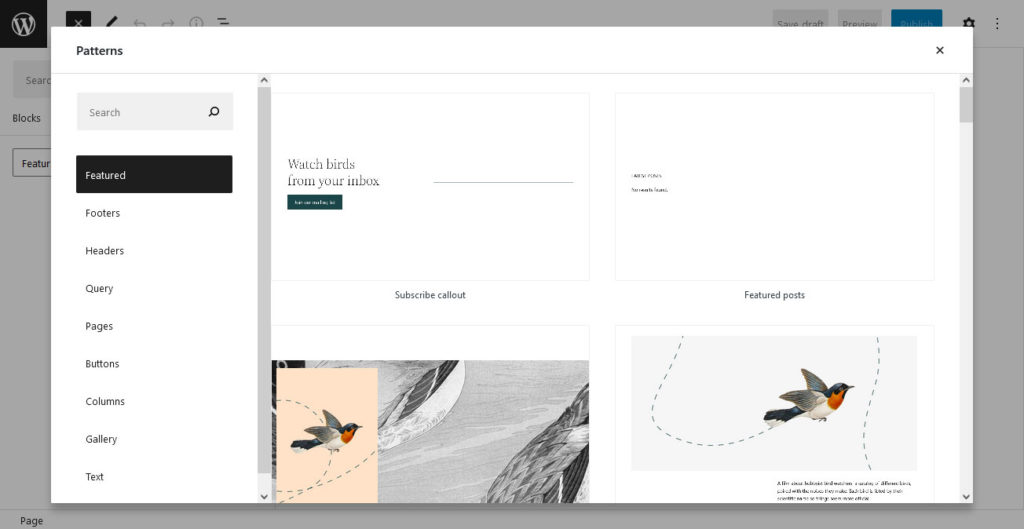
How Do You See Gutenberg and AI Coming Together?
Matt said he has never seen things move as quickly as they are right now. Even Jetpack has an AI now but they are still figuring out the pricing, use cases, etc.
He further said the two mega trends of the next 20 years will be AI and open source, which are highly combinable. AI will start building things and use open source to do so. Both are also very democratizing technologies, we all have access to them.
It’s also important to keep in mind that the best things we are seeing now are the worst things we will see. In addition, the open source stuff is catching up really quickly.
Back in 2016 the motto was to learn JavaScript deeply, now it is Learn AI deeply. In the future, it will likely be as important as literacy. So, play with it, explore the possibilities.
Is There an Approximate Date for Gutenberg Phase 4 (Multilingualism)?
Phase 3 will start properly after WordPress 6.3 comes out. It’s hard be certain about Phase 4, also because we don’t know where AI will be in terms of translation in five years. The fourth phase might be able to start in 2024.
The reason for that is that multilingual is very very complex. For it to work, every single item in WordPress has to go from one-to-one to many-to-many relationships. This adds multifactorial complexity.
It will be most difficult thing we will ever do in WordPress, therefore we need to do it right. It’s important to get the base layer in place, after that things will more easily fall into place. We probably need 18 to 24 months of Phase 3 before the developers can start looking into Phase 4.
Do We Have Any Ideas or Plans for Official Mentorship Programs in the WordPress Community?
One of the most helpful things for people to join the community is when they have someone to turn to. There is a trial program for that in Five for the Future that launches on July 12 where people in the program are asked to become mentors for others, especially from underrepresented groups. If you want to be a part of that as well, you can join here.

Could We Have a Public View of Where in the Different Teams We Need More Support?
We could consider adding dashboards on WordPress.org that display metrics for the different teams. This would show where more help is needed.
Can We Add Volunteer Badges to Profiles on WordPress.org?
Yes, there are some ideas already in the works.
Closing Remarks: See You in Turin, Italy!
And then it was already over again. To be honest, no WordCamp has ever passed as quickly to me as this one. It seemed to happen in the blink of an eye.
Here are some stats for the event. WordCamp Europe 2023 had 2,545 attendees from 94 countries and 658 contributors on Contributor Day. There were 102 speakers from 29 countries and posts from and about WCEU reached 23.2 million people. Of course, none of it would have been possible without the organizers, so a big thanks to them again at this point.

If you want to help make WordCamp Europe even better, please fill out the feedback survey. Aside from that, WCEU 2024 will be in Turin, Italy. See you there, hopefully!
Were you at WordCamp Europe 2023? What did you like/dislike the most? Let us know in the comments below!

